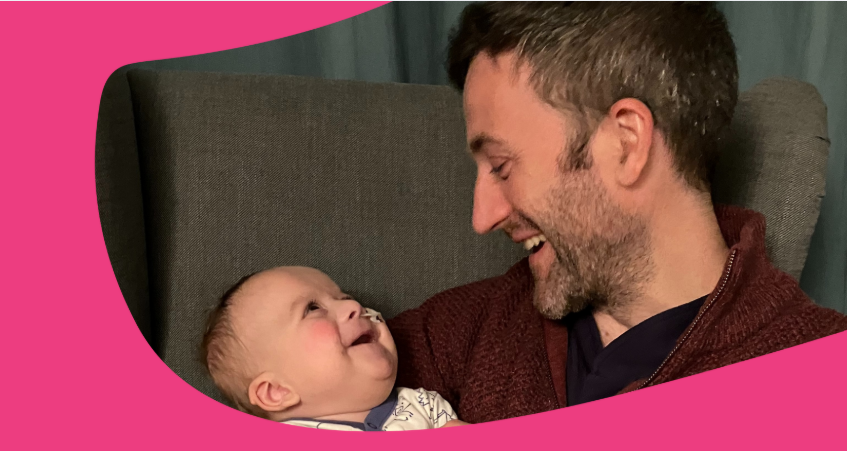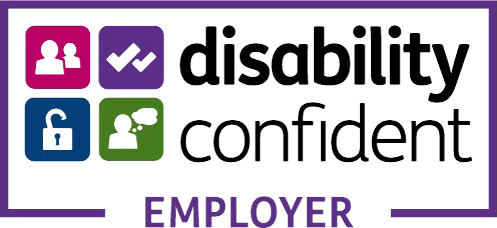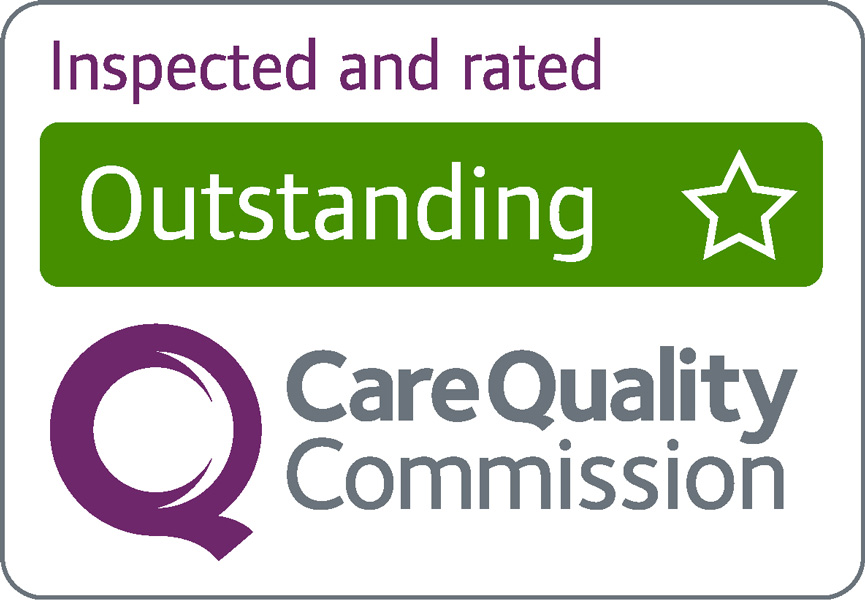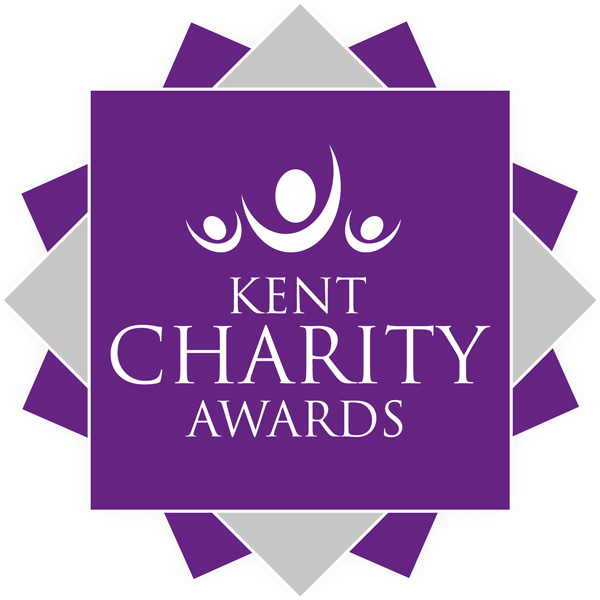
Finding Strength in Support
Alistair’s Journey with ellenor as a Father of a Child with Complex Health Needs
“Our family has been just amazed at the amount of facilities ellenor has, and the value it brings to our family. Over time, we’ve got more and more comfortable talking to ellenor, and making use of the services here. I’d absolutely encourage everyone to reach out as early as possible: to start having those conversations and exploring what ellenor can offer. You’ve got nothing to lose – and everything to gain.”
It’s a reality no parent ever imagines facing: the uncertainty of whether their newborn baby will have the chance to grow up. When Raffy was born with Patau’s syndrome, Alistair and Claire were faced with the overwhelming challenge of navigating their baby boy’s complex health needs and the uncertainty of his future.
Patau’s syndrome, a rare genetic disorder affecting around one in 4,000 births is caused by having an extra copy of chromosome 13. This can lead to various health problems including heart defects, facial abnormalities and developmental delays. For Raffy, this meant being born with a cleft palate, additional digits on his hands and feet, breathing difficulties, and other significant challenges.
But Raffy also, evidently, has something else – a remarkable will to survive. Defying the odds, eight months later, he is living at home with his parents and his two older siblings: Joshua, 5, and Annabelle, 3.
“They absolutely adore Raffy,” 40-year-old Alistair says, his eyes smiling. “They’re both old enough to appreciate him, and they love having a little baby in the family.”
Alistair sketches out an outline of his family. His wife, Claire, is “the rock; the person in the control centre, directing everything”, and his best friend. Annabelle is a born empath, with an innate knack for knowing when someone’s down – and for cheering them up. As for Joshua, if his sister is known for giving hugs, he’s an expert at receiving them: a typically enthusiastic, energetic “cannonball” of a boy.
Raffy, of course, brings his own unique joy to the family – but his life is not without its difficulties. Raffy’s cleft palate means he can’t be breast- or bottle-fed, but instead receives his food through a nasal tube.
“You’re constantly arranging things,” Alistair says of looking after Raffy. “Hospital appointments, nasogastric (NG) tubes; it becomes a full-time job.”
Essentially, Raffy needs round-the-clock attention – which, for a family already stretched by the demands of work and the needs of two other young children, presents a rigorous set of challenges.
Fortunately, though, it was at this stage that ellenor stepped in.
ellenor is a local hospice charity that supports people of all ages – including children and babies – with life-limiting illnesses in Kent and Bexley. ellenor’s Children’s Services provides acute oncology care and end of life care to seriously ill children from their home throughout the Dartford, Gravesham, and Swanley communities: working with the child’s family to deliver clinical nursing support for the child, and respite care for their loved ones.
“I don’t know where we’d be without it,” says Alistair, speaking about the respite care his family have received from ellenor. It gives my wife a couple of hours just to breathe, and do the stuff – mundane things, really – everyday life requires, such as putting a laundry load on or washing the dishes.
“It’s absolutely invaluable; not only from a practical perspective, but a mental health one, too. You’d feel as though you were drowning otherwise.”
Alistair speaks to the complex contrast of emotions involved when the family was referred to ellenor: of the drastic dissonance between the joy of Raffy’s birth, and the fact that a hospice would soon be involved in his care. But Alistair soon found himself surprised at the rich range of services ellenor offered: and realised that his preconceptions about what hospice care involved were unfounded.
“I came into this situation thinking there would be no services available to us,” Alistair remembers, “and that we’d be on our own looking after a child with complex needs. But I’m amazed that we have places like ellenor – and I’m in awe that they exist.”
Of ellenor’s Northfleet-based premises, “I was expecting to come into a care home-type environment, but there’s a cafe, a garden – it’s buzzing here!”
Alistair speaks about the physical and mental demands of raising Raffy, and how the early days involved trawling through medical journals and scientific papers online to understand his newborn son’s condition. But soon, he realised that research was a scant replacement for support – and what he needed was to be able to talk to other people in similar situations.
“People always ask how Raffy is – but no one asks, ‘How are you?’ But even when they do, it’s hard to explain. Our friends with kids who don’t have complex needs have no idea what we’re going through; so it’s difficult to have those kinds of conversations with them.”
Alistair began to search for support groups, where he could be around other parents of children with complex needs. But, when he did what any father on paternity leave would do – that is, tap into existing, female-led support groups – he found himself on the periphery. Though the room was packed, he found himself with both of the two chairs on either side of his empty and feeling awkward and alienated: by no fault of his own, but rather because he was male.
“Women have created brilliant support networks – particularly for new mums on maternity leave, or in that post-partum period – but as men, we haven’t built them yet.”
It begs the question: Why? After all, traditional gender roles are changing and evolving. Paternity leave is far more common than it used to be and the age-old conceptions of man as breadwinner, woman as child-reared – and, indeed, the nuclear family altogether – are weaker than ever.
For Alistair, the reason for this is simple: men are less willing to admit that they need support.
“Men find it a lot harder,” says Alistair, “because we try to ignore the fact that we need that support. That we need to talk and be around people living through similar circumstances.”
The grim reality, though, is far too few men have access to this support. They have mates, yes – but, when push comes to shove, are they able to open up to them? And, if not, where can men like Alistair turn to when all they need is a supportive, sympathetic ear?
His experience shows that, more often than not, the answer to these questions is no. But in ellenor, at least, Alistair and his family have begun to find the structures to maintain them on their testing, yet life-affirming, journey; and to understand that ellenor isn’t just for the patient, but for the whole family.
“ellenor has given us hope. We felt alone, with a weight on our shoulders – the weight not only of everything that we had to do on a daily basis, but of everything that was to come in the future. ellenor has enriched our family life by providing us with a support network that doesn’t exist anywhere else; by providing us with structure and letting us know that, yes, there is a way forward – for us, and for other local families experiencing similarly challenging circumstances.
“Knowing that structure is there in what would otherwise be a total, complete unknown is very reassuring for us; to know that there are people here at ellenor for us to lean on. Without ellenor, we couldn’t; without ellenor, I just wouldn’t know what we’d do.”
To learn more about how ellenor supports babies and children with life-limiting illnesses, read about ellenor’s Children’s Services; or, to help ellenor raise the £7 million it needs, every year, to continue caring for local families, make a tax-free donation today. Every pound matters – thank you for your support.





